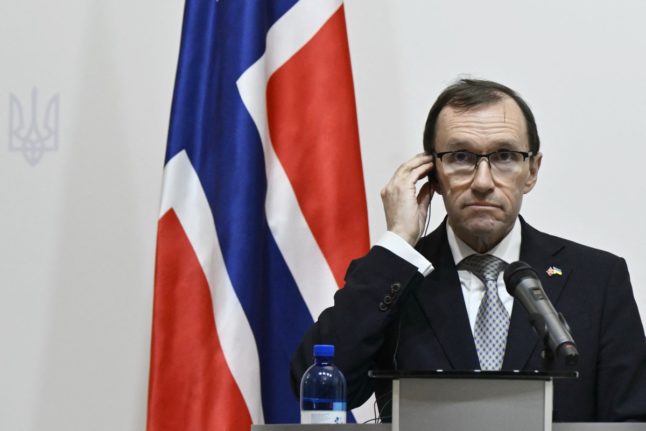Norway has so for pledged some 75 billion kroner ($6.8 billion) in military and civilian aid to be distributed between 2023 and 2027.
Prime Minister Jonas Gahr Støre this weekend hinted that the amount could be increased.
“We’re talking about significant increase, I mean that is really relevant also compared with what we’ve done so far,” Foreign Minister Espen Barth Eide told an Oslo press briefing.
The minister, who visited Ukraine last week, added that they had not yet decided on a precise sum.
Ukraine, which is short on ammunition and recruits, has recently struggled on its eastern front in the face of a Russian offensive.
But it received a shot in the arm this weekend when the US House of Representatives adopted a $61-billion-dollar aid plan after drawn-out negotiations.
“The alarm bell has sounded across the West … The sense is that we all need to do more and that nobody has done enough,” Barth Eide said.
“We have to actually look into how this ends strategically, and Russia winning is not an option,” he added.
Norway — a major oil and gas producer that has benefited greatly from surging prices following Russia’s invasion of Ukraine — is one of the main contributors to Ukraine, according to a ranking by the Kiel Institute.
While in Kyiv, Barth Eide announced that Norway and Ukraine had agreed to a security deal which would be signed at the next meeting between Ukrainian President Volodymyr Zelensky and Norway’s Gahr Støre — though a date has yet to be announced.



 Please whitelist us to continue reading.
Please whitelist us to continue reading.
Member comments